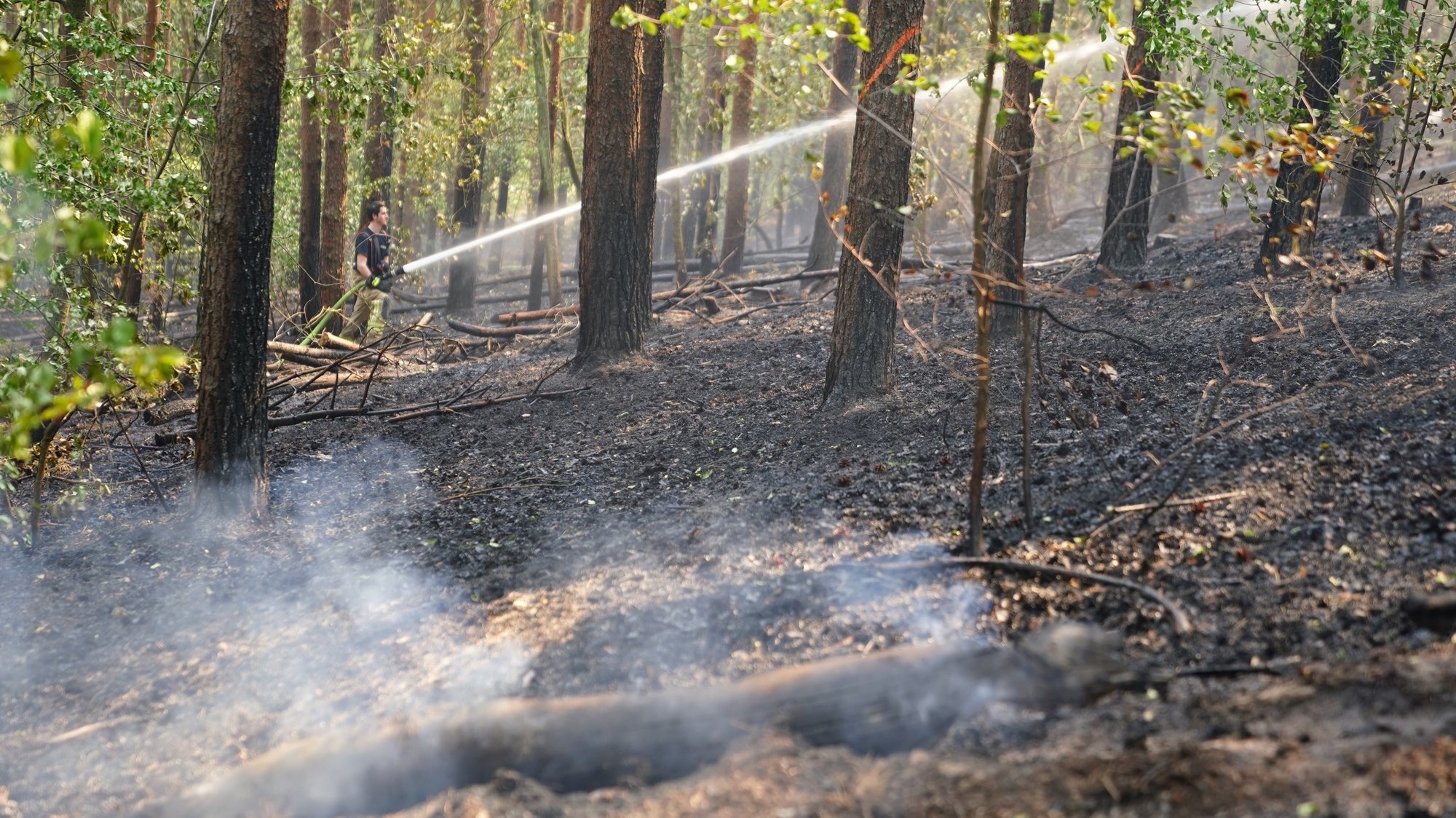This Thursday a fire broke out in the largest forest in Berlin, Germany, in the Grunewald area and next to an ammunition depot for police forces.
During the morning, the sky of Berlin had white smoke over the large forested area to the southwest of the German capital, in Grunewald, and several explosions were heard, which rang out at regular intervals.
The fire spread in an area of 15,000 square meters, first to an ammunition storage and disposal site, then to the surrounding forest,” said the fire department, which even asked the army for help, requesting tanks for the fires.
The ignition, which is not yet under control, has been described as “unusual” since it spreads in a war ammunition siteexplained to the AFP news agency, the spokesman for the Berlin fire department, Thomas Kirstein.
Explosive devices, including World War II bombs found underground in Berlin, are stored in a controlled manner in the warehouse in question.
A one kilometer security zone has been created around the ammunition storage site and firefighters, 120 in total, are positioned around it.
We urge people not to enter the forest, since there is a risk to life,” warned the spokesman, who admitted that what could have caused the fire is still being investigated.
The flames also caused interruptions in public transportwhich caused the closure of the train lines that cross the area and the closure of roads.
However, there is no record of people or homes affected.
the german city not conducive to fires of this typeBut with the drought currently affecting all of Europe, the threat is growing, to the 29 hectares of Grunewald forest that make Berlin one of the greenest capitals in the world.
On the outskirts of Berlin, in the Brandenburg region, several forest fires have already started since the beginning of summer, one of which has burned more than 850 hectares.
According to the Helmholtz Center Environmental Research Institute, much of the country is in a state of “extreme drought” or “exceptional drought”including the city of Berlin.
Heat waves like the one Europe is experiencing are, according to scientists, a clear indicator of global warming and are expected to become more frequent, longer and more intense.
Source: Observadora
